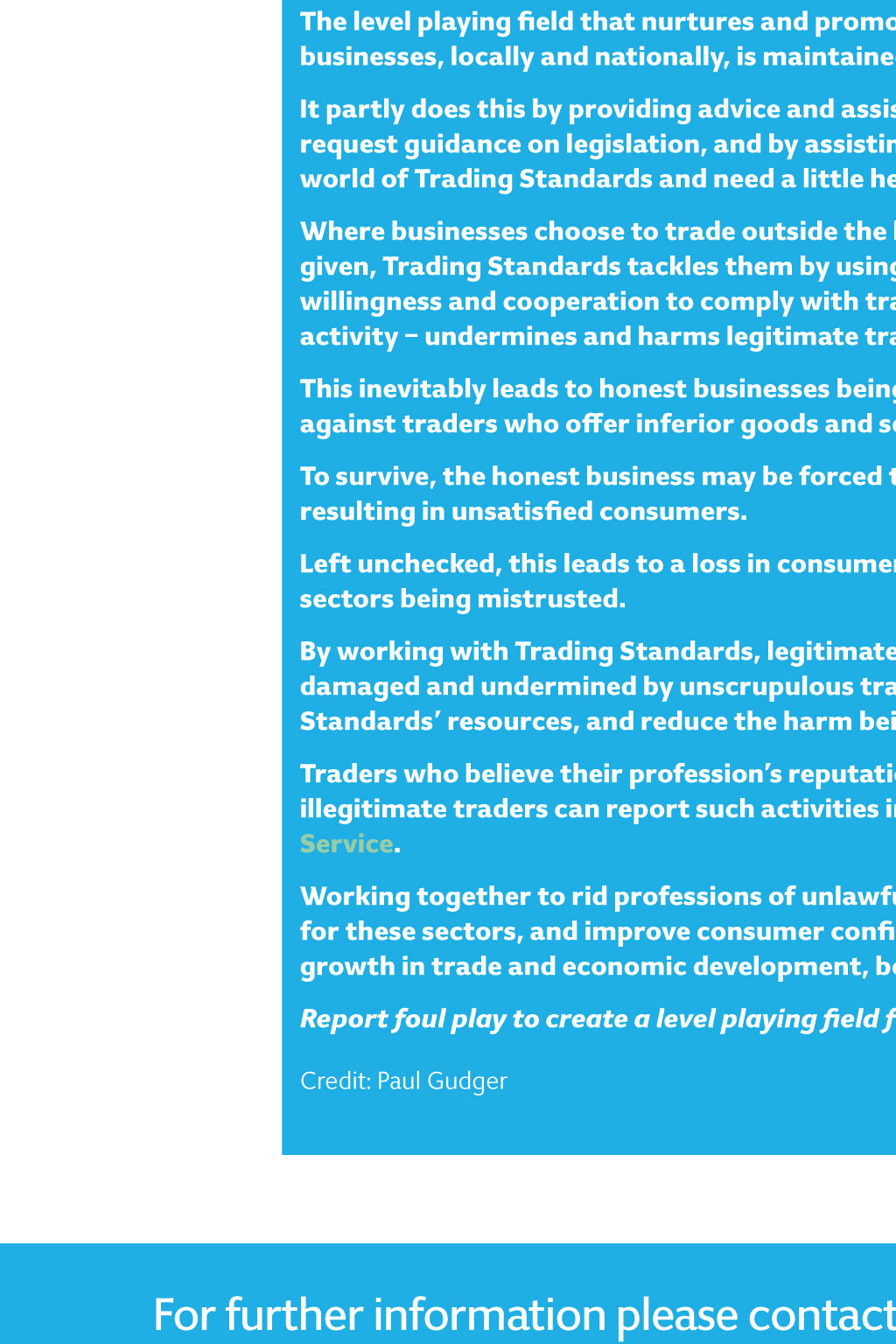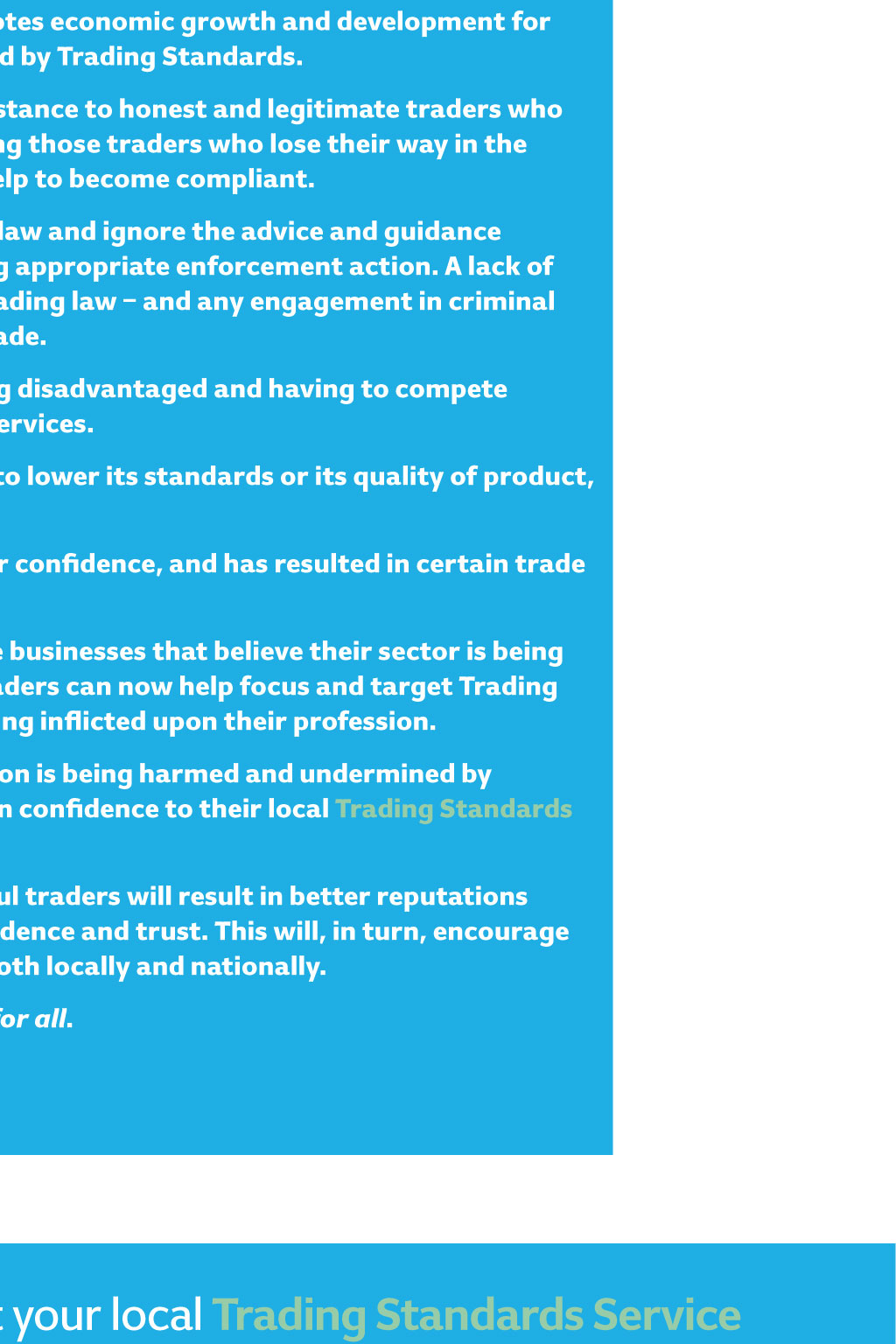




























LONDON eDitiON autumn 2016 round-up are you ready for nutritional labelling? From 13 december 2016, it will be mandatory for food and drink manufacturers to include nutrition information on almost all of their prepacked food and drink. The mandatory nutrients will have to be listed in the following order, per 100g or 100ml: l Energy kcal/kJ l Fat g: - of which saturates g l Carbohydrate g: - of which sugars g l Protein g l Salt g RouNd-uP The word salt will have to be listed instead of sodium, in a bid to make it easier for people who require a diet lower in salt to choose between products. If the salt content is exclusively because of the presence of naturally occurring sodium, you can inform customers of that for example: This product contains no added salt. Salt content is due to naturally occurring sodium. Additional voluntary indications can also be made for one or more of the following nutrients: l Monounsaturates l Polyunsaturates l Polyols l Starch l Fibre l Vitamins and minerals (but only if they are present in significant quantities) No other nutrient or substance may be listed in the nutrition declaration. However, where you make a nutrition or health claim in respect of a substance not referred to in either list, you must declare the amount of the substance in the same field of vision as the nutrition labelling but not within the nutrition table. An example of such a claim would be high in omega-3. Per portion/unit information for example, half a pizza/one biscuit can also be given as long as it is given in addition to the per 100g/100ml information and is easily understandable by the consumer. The number of portions/units contained in the package must also be given. Exemptions from the mandatory requirement are listed in Annex V of the Provision of Food Information to Consumers Regulations. However, if you include nutritional information voluntarily, all mandatory rules apply. Exemptions include: l unprocessed products that comprise a single ingredient or category of ingredients l Herbs, spices, salt, chewing gums l Foods in packaging or containers, the largest surface of which has an area of less than 25cm2 l Alcoholic beverages (provisionally exempt) l Food supplied directly by a small manufacturer to a consumer or local retailer. Contact your local Trading Standards Service for further advice on this exemption Front of pack nutrition information can also be given, so consumers can see at a glance whats in their food. This is restricted to the energy value, or the energy value plus the amount of fat, saturates, sugars and salt. The front-of-pack label must not mislead or confuse the consumer, so the Food Standards Agency (FSA) has issued guidance to help businesses design theirs. You do not have to follow the FSA scheme, but it does provide consistency across the industry, making it easier for consumers to compare like-for-like products. The FSA scheme has now been adopted by all major uK supermarkets and several manufacturers. Credit: Stuart Powell Images: Billion photos / Shutterstock new confidential hotline to combat food crime Anyone with concerns about food crime can report their suspicions, in confidence, to a new hotline, either over the phone or via email. Food Crime Confidential, launched by the National Food Crime unit (NFCu), is a reporting facility aimed at those who work in or around the uK food industry. The NFCu, part of the Food Standards Agency, would like to hear from anyone who suspects that: l Food or drink contains things that it shouldnt l Methods used in workplaces for producing, processing, storing, labelling or transporting food are not quite right l An item of food or drink identified as being of a certain quality, or from a specific place or region doesnt appear to be Call 0207 276 8787 or email foodcrime@foodstandards.gsi.gov.uk Credit: Stuart Powell Images: kaprikx / Shutterstock Fireworks forum a success More than 100 people took part in the first National Fireworks Forum, held at the Guildhall, Worcester, earlier this year. The event was aimed at supporting trading standards and fire safety officers in the uK who are involved in the licensing of fireworks and explosives. Initially, 50 places were allocated for the forum, but many more fireworks and pyrotechnic companies were keen to be involved. There were presentations in the morning by dr Tom Smith, of the Explosive Industry Group, on the Explosives Regulations; Martyn Sime (Health and Safety Executive); Ross McLachlan (Civil Aviation Authority); and Anett Polyak, from TuV, who travelled from Hungary to speak on compliance and testing. hall, with stands from some of the uKs major fireworks suppliers and pyrotechnicians, At the end of the day there was an Ask the Experts session, at which all the presenters answered questions. The forum offered attendees a huge amount of information and expertise, and there was some really positive feedback. For more information or advice, contact your local Trading Standards Service. Credit: Peter Holmes Images: solarseven / Shutterstock In the afternoon, there were further talks from Lincoln Parkhouse, a theatrical pyrotechnician at JustFX; Alan Shaw, from Locards, on disposal; and Rob Novak, from the Chief Fire officers Association, on fire safety. To ensure attendees had a chance to speak to businesses, an exhibition supported by the National Trading Standards Imports Team from Suffolk was held in the main aWarE oF crImE? rEPorT IT anonymoUSly To TradIng STandardS the level playing field that nurtures and promotes economic growth and development for businesses, locally and nationally, is maintained by trading Standards. it partly does this by providing advice and assistance to honest and legitimate traders who request guidance on legislation, and by assisting those traders who lose their way in the world of trading Standards and need a little help to become compliant. Where businesses choose to trade outside the law and ignore the advice and guidance given, trading Standards tackles them by using appropriate enforcement action. A lack of willingness and cooperation to comply with trading law and any engagement in criminal activity undermines and harms legitimate trade. this inevitably leads to honest businesses being disadvantaged and having to compete against traders who offer inferior goods and services. to survive, the honest business may be forced to lower its standards or its quality of product, resulting in unsatisfied consumers. Left unchecked, this leads to a loss in consumer confidence, and has resulted in certain trade sectors being mistrusted. By working with trading Standards, legitimate businesses that believe their sector is being damaged and undermined by unscrupulous traders can now help focus and target trading Standards resources, and reduce the harm being inflicted upon their profession. traders who believe their professions reputation is being harmed and undermined by illegitimate traders working outside the law can now report people engaged in such activities via the anonymous, automated hotline 0300 303 2636 or by using the online reporting system www.centsa.org.uk/anonymous-hotline Working together to rid professions of unlawful traders will result in better reputations for these sectors, and improve consumer confidence and trust. this will, in turn, encourage growth in trade and economic development, both locally and nationally. Report foul play to create a level playing field for all. Credit: Paul Gudger For further information please contact your local Trading Standards Service